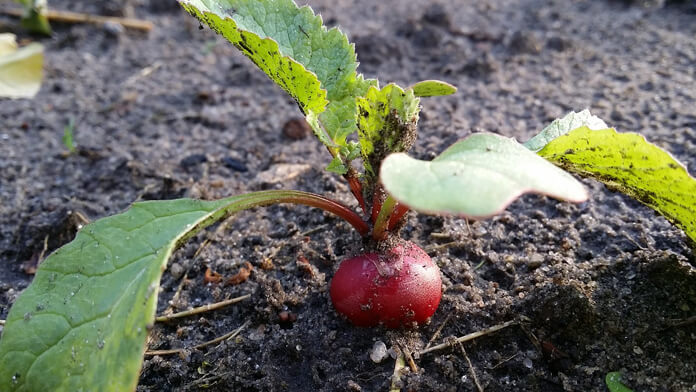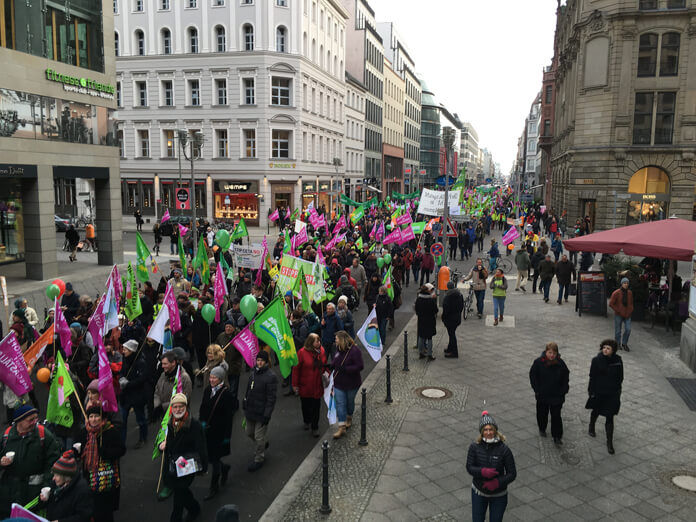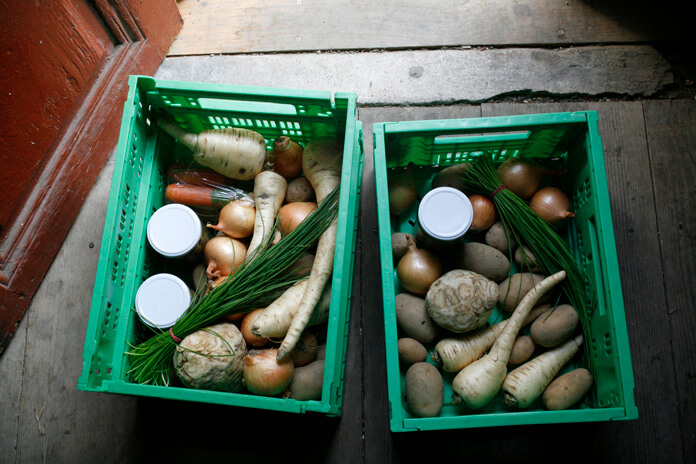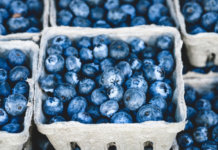
Food scares from bacteria outbreak. The emergence of new and stronger antibiotic resistant “superbugs”. Dissatisfaction with food taste and quality. A lack of transparency between farmer and consumer, etc, etc. These are just some of the many reasons an increasing number of Germans are becoming fed up with our current food system.

Thousands marched in the “Wir haben es Satt” (We are fed up) this past January in Berlin. They are saying “no” to the industrialized global agriculture system and “yes” to a more sustainable alternative.
The rise of community supported agriculture
One concept that has been called the “food system of the future” is a community supported agriculture (CSA) scheme, known as “Solidarische Landwirtschaft” in Germany. This was first developed in the U.S. in the mid 1980s. Since then, CSA programs have been steadily increasing in number of schemes and participants globally.
A community supported agriculture program is a collective collaboration between the farmer who grows the products and the consumers in which food is provided to. Consumers fund the year’s harvest. This is either through one single payment at the beginning of the growing season or an agreement to pay monthly payments. In turn, they share the risk of a variable harvest.
Each week, consumers are then delivered a box of fresh, local, seasonal fruits, vegetables and animal products. This depends on the configuration of the individual CSA program. In some cases, consumers also participate in the decision-making process and are able to visit or work on the farm if they wish.
Each scheme is different, however. Variables such as farm size, climate, location, or farmer preferences can affect which products are delivered to consumers.
CSAs are a win-win situation

For the consumer this provides the benefit of a transparent system, in which they know exactly who, how, where and when food is being produced. As well, most, if not all, CSA schemes adhere to some level of organic standards. Many in Germany, for example, are Demeter or Bioland certified. This gives consumers the assurance that food is produced according to standards of human, environmental and animal welfare and sustainability.
For the farmer, participation in a CSA program can effectively remove them from the market pressures and risk of volatile prices. Many farmers today, for example, grow for large corporations. They are subject to the rules and desires of these massive global companies and are vulnerable to changes in market prices. When the consumers are providing funds for the farmer, they are no longer strictly dependent on the market or complex government subsidies. Instead, farmers are able to produce in a manner in which reflects the needs and preferences of not only themselves but also the community.
Finding a CSA near you

Participation in a CSA program is relatively easy in many areas throughout Germany. Some members, or “shareholders” predominately consume only what is provided to them through the CSA. Others use the delivery as a supplement to their daily diet, purchasing products at the grocery store as well.
Check the solidarische landwirtschaft website to find a local CSA program or even start your own with the participation of community members.









